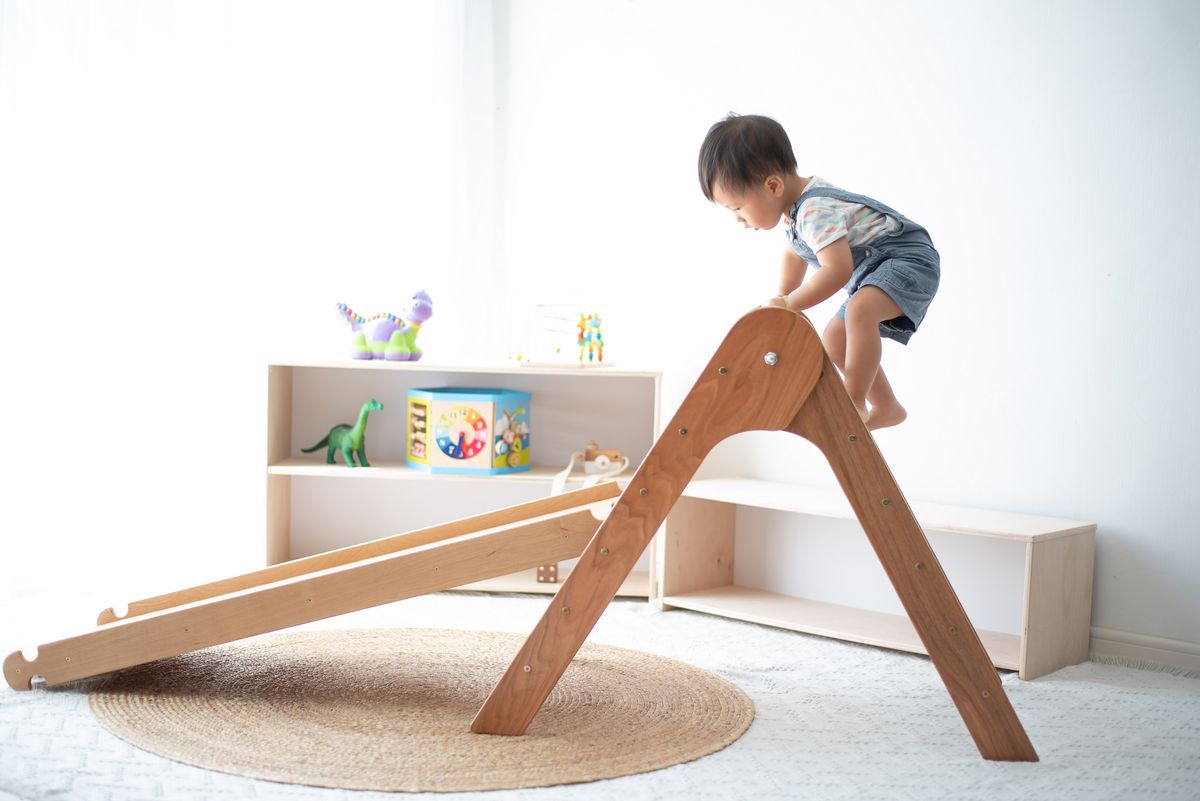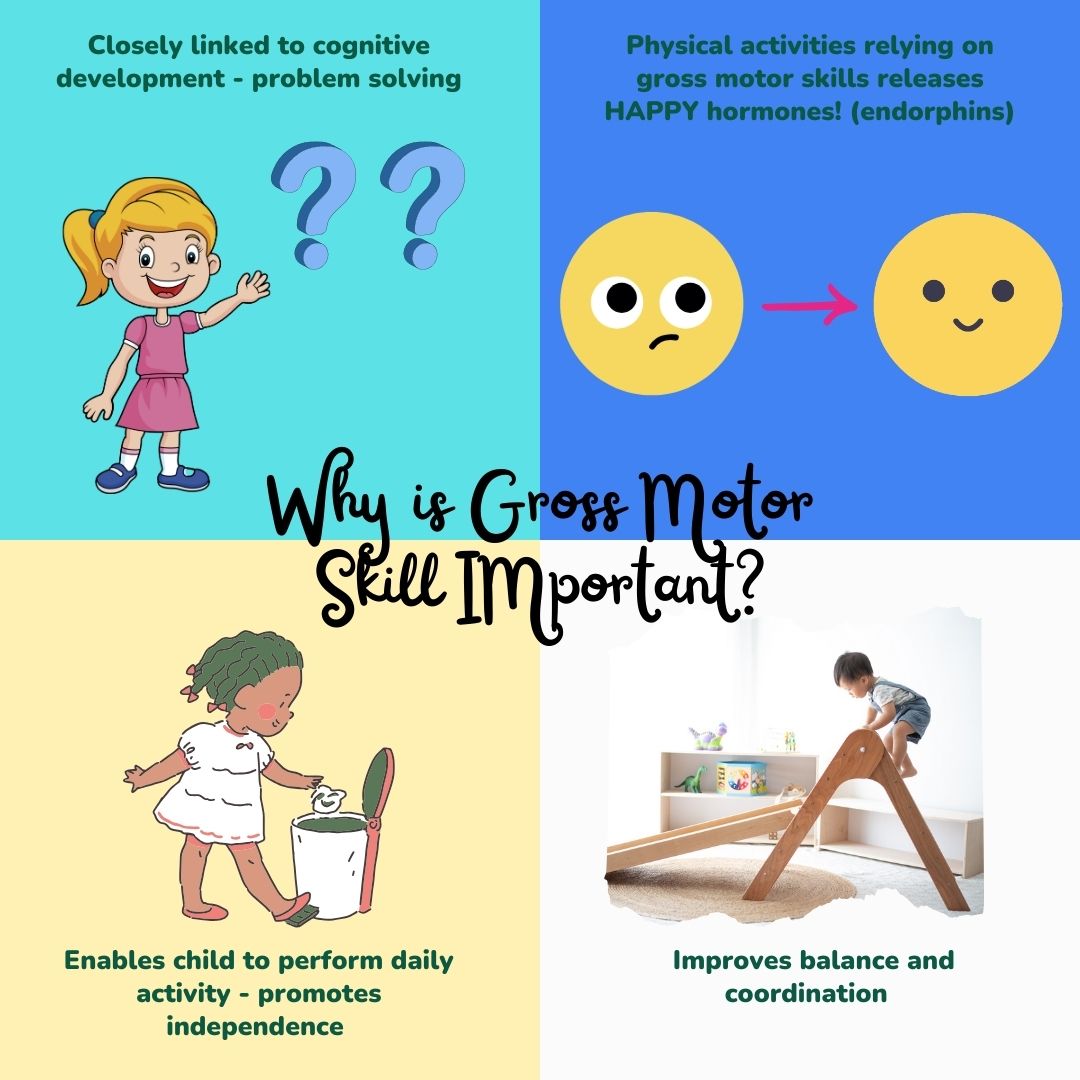
What is gross motor skill?
Gross motor skill refers to our ability to use and control the large core stabilising muscles of our body. This skill starts developing once we are born. For example, at infancy (0-1 year old), babies starts gaining control of their neck muscles to lift and support their heads while lying on their stomachs. They will then start rolling, which contributes to body strength and mobility. Around 6-9 months, most babies can sit up unsupported, which is a significant gross motor achievement.
It is important to note that individual development varies, and some children may reach these milestones earlier or later than the average timeline. Encouraging physical activity and providing opportunities for play and movement are essential for the healthy development of gross motor skills in young children.
Why is gross motor skill important?
- Physical Health
Developing and improving gross motor skills helps children and adults maintain good physical health. These skills promote physical fitness, strength, endurance, and flexibility.
- Independence
Gross motor skills enable us to perform basic daily activities such as walking, running, dressing and feeding ourselves.
- Cognitive Development
The development of gross motor skills is closely linked to cognitive development. These skills involve coordination, spatial awareness, and problem-solving. As young children learn to navigate their bodies and their environment, they develop cognitive skills, such as planning, decision-making, and understanding cause and effect.
- Emotional Regulation
Physical activity (which relies on gross motor skills) can help regulate emotions. Exercise releases endorphins, which can improve mood and reduce stress and anxiety.
- Balance and Coordination
Gross motor skills such as balance and coordination are not only important for physical activities but also for everyday tasks like walking on uneven surfaces, climbing stairs, and maintaining stability in various situations.
- Self-Confidence
As young children master gross motor skills, they gain self-confidence. Success in physical activities and sports can boost self-esteem and self-efficacy, which can have a positive impact on various aspects of life.
- Play and Recreation
Gross motor skills facilitate participation in sports, games, and recreational activities. Engaging in physical play not only promotes health but also provides opportunities for social interaction, teamwork, and enjoyment.





